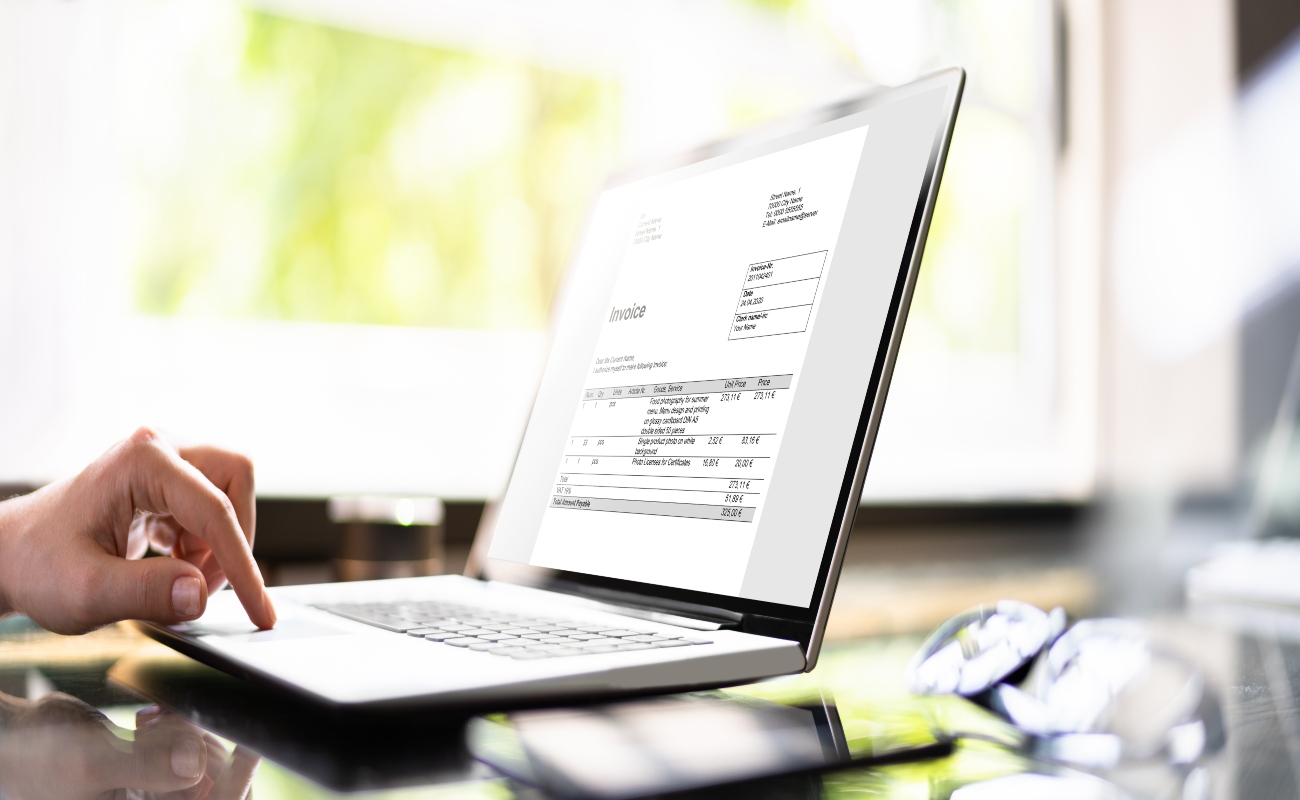Facture

Réforme 2024 : quel sera le rôle des opérateurs de dématérialisation ?
nitialement prévue à compter du 1er juillet 2024 et finalement décalée en 2026, l’obligation de facturation électronique génère toujours de la confusion. Cela s’explique notamment par le changement du dispositif de transmission et de réception des factures électroniques qui l’accompagne : les entreprises devront désormais passer par l’intermédiaire d’une plateforme de dématérialisation. Ce qui implique l’arrivée de nouveaux acteurs dans le circuit de dématérialisation. En effet, après la réforme, seuls le portail public de facturation (PPF) et les plateformes de dématérialisation partenaires (PDP) seront habilités à adresser directement les factures. Et les opérateurs de dématérialisation dans tout ça ? Parlons-en.
En savoir plus
Généralisation des factures électroniques dans votre entreprise : comment préparer son projet ?
Le projet de mise en place de la facturation électronique au sein de votre entreprise ne doit pas devenir anxiogène. Bien préparé, la transition vers ce nouveau mode de fonctionnement a toutes les chances de se faire en douceur, d’ici 2026 (report de l’entrée en vigueur prévue en 2024). Loin de n’être réduite qu’à un simple branchement à une plateforme de dématérialisation, la facturation électronique dans votre entreprise doit respecter quelques grandes étapes. Comment réussir à déployer un projet aussi important dans votre structure ? Par quel bout commencer ? Retrouvez dans cet article nos conseils pour vous aider à préparer votre projet.
En savoir plus
Emission de factures clients/fournisseurs : les avantages de l’automatisation
Le traitement manuel des factures a fortement tendance à monopoliser les services comptables et les éloigner de missions plus stratégiques. Afin de décharger les entreprises de leurs obligations administratives, et de pousser encore plus loin la dématérialisation de leurs processus financier et comptable, le Gouvernement s’est lancé dans une grande réforme autour de la facturation électronique, effective en 2026 (report de l’entrée en vigueur prévue en 2024). Parmi leurs obligations, les entreprises vont retrouver celle d’émettre des factures électroniques. Et si l’automatisation à l’émission des factures clients était déjà un premier pas vers cette transformation digitale des entreprises ?
En savoir plus
Experts comptables : quels conseils donner à vos clients dans le choix d’une PA ?
A partir de 2026 (report de l’entrée en vigueur prévue en 2024), les entreprises B2B auront l’obligation de passer à la facturation électronique. En tant qu’experts-comptables, vous êtes les conseillers de confiance des dirigeants d’entreprise et donc les mieux placés pour les aiguiller dans la dématérialisation de leurs factures. Devant le rapprochement des échéances, vos clients sont certainement de plus en plus nombreux à se questionner à propos du choix de leur plateforme. Bien que certains aient peut-être déjà opté pour le portail public de facturation (PPF), d’autres préfèrent l’alternative de la PDP qui présente plus de fonctionnalités. Pour aider ceux-ci à faire le meilleur choix possible, voici les conseils que vous pouvez leur donner.
En savoir plus
DAF et DSI : comment la facturation électronique va améliorer leur collaboration ?
La généralisation de la facturation électronique, à partir de 2026 (report de l’entrée en vigueur prévue en 2024), intervient dans un contexte de digitalisation croissante de toutes les fonctions métier. Largement médiatisée, cette réforme fait la promesse aux entreprises d’une réduction de leurs coûts, d’une amélioration de leur efficacité et d’une plus grande transparence dans leurs transactions commerciales. Cependant, pour en tirer pleinement parti, DAF et DSI doivent travailler de concert pour tenir compte des problématiques métiers et des impacts sur le système informatisé de leur entreprise. Facturation électronique, une opportunité toute trouvée pour développer la collaboration entre le DAF et le DSI ? Explications.
En savoir plus
Editeur de logiciels, choisissez un partenaire PA de confiance pour vous accompagner dans la facturation électronique !
À compter de 2026 (report de l’entrée en vigueur prévue en 2024), l'obligation de facturation électronique sera effective. Les entreprises françaises doivent donc se préparer dès à présent à la mise en place de la facturation électronique. Les éditeurs de logiciels qui éditent et traitent des factures vont eux-aussi être impactés par la réforme, puisqu’ils devront s’adapter à un nouveau cadre technique bien défini. Deux solutions s’offriront à eux : soit ils procèderont aux développements techniques requis pour répondre aux exigences de l’administration fiscale, soit ils développeront un partenariat stratégique avec une PDP homologuée… sous réserve de trouver la plateforme de confiance qui les accompagnera dans leur activité !
En savoir plus
Réforme 2024 : comment choisir sa plateforme de facturation électronique ?
Initialement prévue à compter du 1er juillet 2024 et finalement décalée en 2026, l'obligation de la facturation électronique sonne l’arrivée de nouveaux acteurs. Le nouveau schéma de transmission et de réception des factures électroniques prévoit que les entreprises les adresseront à leur client par l’intermédiaire d’une plateforme de dématérialisation. Elles ne pourront plus le faire directement entre elles ! Portail public de facturation (PPF), plateformes de dématérialisation partenaires (PDP) ou opérateurs de dématérialisation (OD)… le choix de ces intermédiaires est large, pénalisant ainsi les entreprises qui peuvent vite se sentir déboussolées dans ce nouvel écosystème. Quel type de plateforme choisir ? Quelles sont leurs différences ? Eclairage.
En savoir plus
5 étapes à suivre pour automatiser le circuit de validation des factures fournisseurs
La validation des factures fournisseurs est une partie importante de la comptabilité d’une entreprise. Néanmoins, il s’agit d’une tâche à la fois fastidieuse et chronophage, en plus d'être sensible : la moindre erreur expose à des sanctions. L'automatisation de ce circuit, rendue possible grâce à la dématérialisation des factures, permet à la fois de gagner en temps et en efficacité, mais offre également l’assurance d’être en règle en cas de contrôle.
Vous souhaitez intégrer l’automatisation du circuit de validation des factures fournisseurs dans votre entreprise ? Freedz vous présente les 5 étapes à suivre pour la mettre en place.
En savoir plus
5 bonnes pratiques pour en finir avec les retards de paiement
Les retards de paiement sont un véritable fléau pour les entreprises : d’après le baromètre trimestriel BVA pour le comité de crise des délais de paiement publié en février 2021, 13 % des entreprises sondées ont constaté un allongement des règlements par rapport à la même période de l’année précédente, soit des retards qui atteignaient en moyenne 12,4 jours. Si ce chiffre ne paraît finalement pas si important, il peut néanmoins impacter la santé financière des entreprises les plus fragiles, voire carrément conduire à la faillite… Pour en finir avec les relances et les impayés, découvrez nos conseils !
En savoir plus
Qu’est-ce qu’une facture électronique ?
Suite à la loi de finances 2020, le mot est sur toutes les lèvres. La facture électronique va devenir obligatoire en France pour les échanges B2B ! Cependant, savez-vous vraiment de quoi il s’agit ? Du PDF à la facture structurée, les formats sont nombreux et les gains que vous pourrez en tirer sont tout aussi variables.
Alors qu’est-ce qu’une facture électronique ? Quels sont les différents types et quoi en espérer ? On fait le point !
En savoir plus
Obligation facturation électronique : il est urgent de s’y préparer !
Si l’obligation de facturation électronique en réception ne sera effective qu’à partir de 2026, il est important de se préparer dès aujourd’hui aux nombreux changements à venir. A compter de 2026, toutes les entreprises assujetties à la TVA devront en effet émettre leurs factures au format électronique, indépendamment de leur taille ou de leur chiffre d’affaires. Quelles actions mettre en œuvre dès à présent pour anticiper cette nouvelle organisation ? Nos conseils.
En savoir plus
Tour d’horizon de la facturation électronique en Europe
Conformément aux recommandations européennes, l'utilisation de la facturation électronique dans le cadre de transactions en B2G s’est fortement développée en Europe. La Directive 2014/55/UE impose en effet aux entités publiques d’être en mesure de recevoir des factures électroniques depuis 2020. Du côté du B2B, certains pays tels que l’Italie ou la Finlande font figure de précurseurs, tandis que d’autres comme la France ou la Belgique s’apprêtent à franchir le pas en la rendant obligatoire en B2B. Tour d’horizon de la facturation électronique en Europe.
En savoir plus